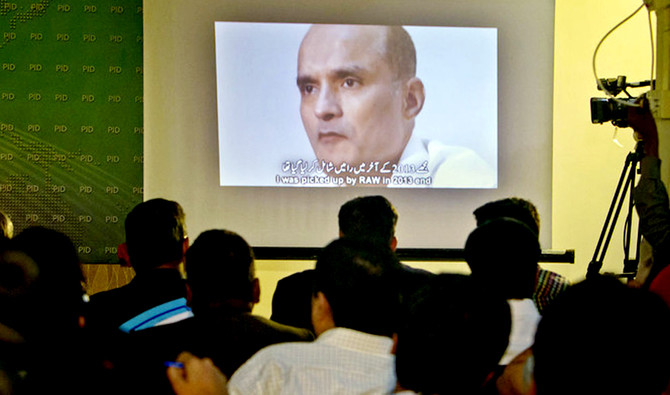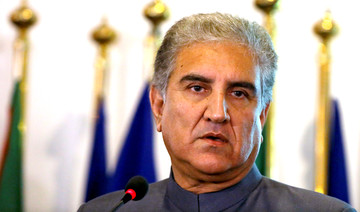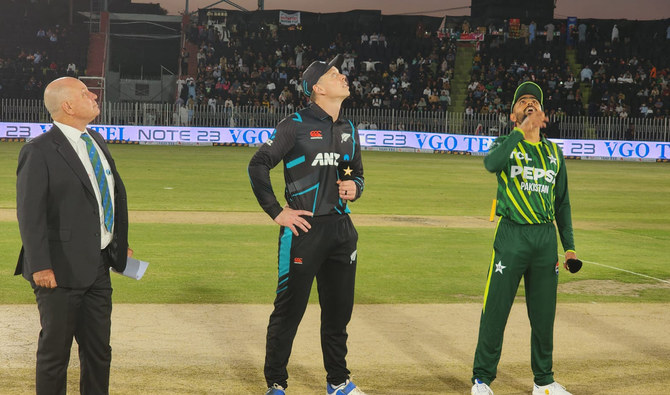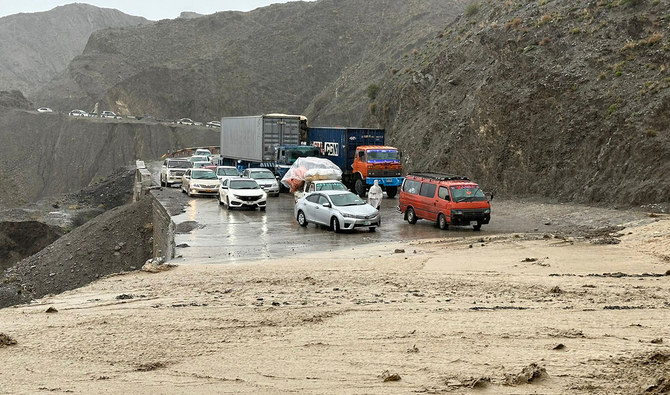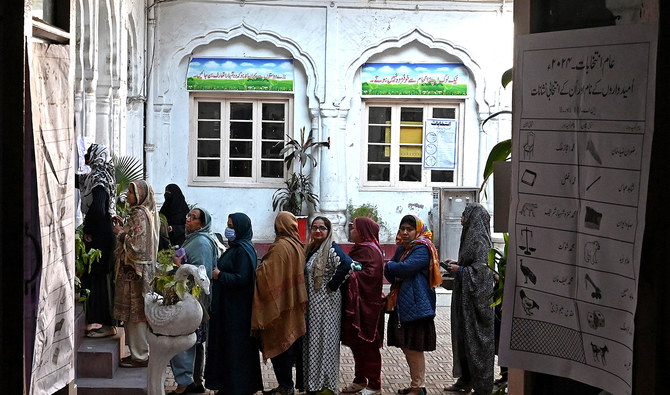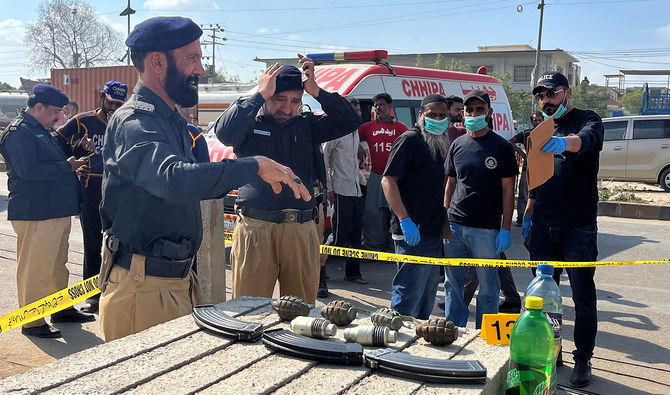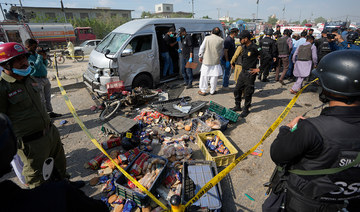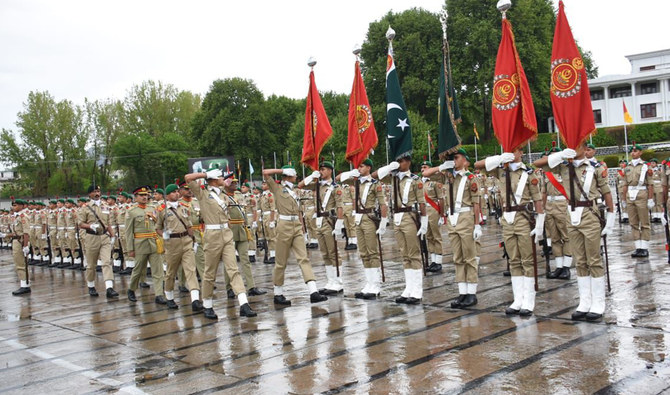KARACHI: Legal experts are optimistic that Pakistan will emerge victorious in the Kulbhushan Jadhav Case, which the International Court of Justice (ICJ) on Wednesday fixed for hearing on 18 February, 2019. However, if the case goes against it, then there are precedents which may mean Pakistan can choose not to comply.
“Pakistan has a strong case, especially since the government of Prime Minister Imran Khan has sent a competent legal team to the Hague,” Barrister Masroor Shah, an Islamabad-based legal expert, told Arab News.
“The International Court of Justice (ICJ), the principal judicial organ of the United Nations, will hold public hearings in the Jadhav case (India v. Pakistan) from Monday 18 to Thursday 21 February 2019, at the Peace Palace in The Hague, the seat of the Court,” a press release from the ICJ, released on Wednesday, stated.
According to the release, the hearings will be streamed live in English and French on the Court’s website as well as on UN Web TV, the United Nations online television channel.
Jadhav, an Indian national, was arrested on March 3, 2016 in the Balochistan province of Pakistan. The accused, a serving officer in the Indian Navy, confessed to conducting sabotage and terrorism activities on Pakistani soil. India, however, rejected the claims, insisting that that Jadhav’s confession was forced.
Jadhav was sentenced to death on April 10, 2017 by the Pakistan’s Field General Court Martial (FGCM) for his involvement in espionage. His appeal was rejected by the military appellate court. On May 8, 2017, India appealed to the ICJ against the verdict and 10 days later Jadhav received a stay of execution.
India submitted memorials in the Jadhav case. In response, Pakistan claimed that the Vienna Convention was not applicable in the case of Jadhav, as he was serving officer in the Indian Navy and spying for the country’s external intelligence agency, RAW, when he was arrested in Balochistan.
India maintains that the accused was kidnapped from Iran where he was working, having already retired from the Indian navy.
Article 36 of the Vienna Convention on Consular Relations (1963), which the United States ratified in 1969, states that when a foreign national is arrested or detained on criminal or immigration charges, the detainee must be advised of the right to have the detainee’s consulate notified, and that the detainee has the right to regular consultation with consular officials during detention and any trial.
This article provides Jadhav no relief, experts in Pakistan claim.
“Consular access, which India has been demanding for Jadhav and which it also made a basis for taking the case to ICJ, cannot be provided to a spy, who has confessed to acts of terrorism inside Pakistan,” Shah argued, adding there are three cases in which such access can be provided.
The first, Shah said, is if the detainee is a prisoner of war who has been imprisoned when the countries that are party to a case are in a “declared” war. The second case is if the accused has entered the country legally but his visa is expired. Third is if the accused is a refugee.
“Jadhav’s fits none of the above cases, so he doesn’t merit consular access and Pakistan has rightly and legally denied such access,” Shah said.
He also said that India’s claim that Jadhav was kidnapped from Iran is invalid.
“Had a national of a third country been kidnapped from Iran, then Iran — being a sovereign state — would have been the first to object. Iran has never substantiated the fake Indian claim, hence this point should be rejected, immediately,” Shah said.
When asked about what Pakistan’s legal position would be if the case is found in India’s favor, Shah said that Pakistan should not have submitted to the legal jurisdiction of the ICJ in the first instance.
On 10 August 1999, a maritime patrol aircraft of the Pakistan Navy was shot down by the Indian Air Force over the Rann of Kutch, killing all 16 people on board. “Pakistan moved to the ICJ and India refused to submit to its jurisdiction. So, Pakistan had a precedent from Indian case and should have not gone to the International Court,” Shah says.
So, it seems unlikely that the ICJ’s verdict will go against Pakistan, legal experts say, Pakistan has the option not to comply.
“Countries are not bound to comply (with ICJ verdicts) because there are certain precedents in which many countries have not complied with ICJ orders,” said Muhammad Majid Bashir, a legal expert who has also served as a judge.
International law expert Taimur Malik told Arab News that both sides have attached “unnecessary expectations and emotions” to the outcome of the case.
He highlighted that the “case is focused solely on granting consular access to Jadhav and the ICJ will not be deciding anything regarding his sentencing in Pakistan.”
Malik added that the ICJ’s main concern would be deciding whether the dispute should be decided on a bilateral basis pursuant to the Consular Agreement of 2008 between India and Pakistan, and whether the Vienna Convention on Consular Relations applies to someone arrested for involvement in espionage or terrorist activities.


